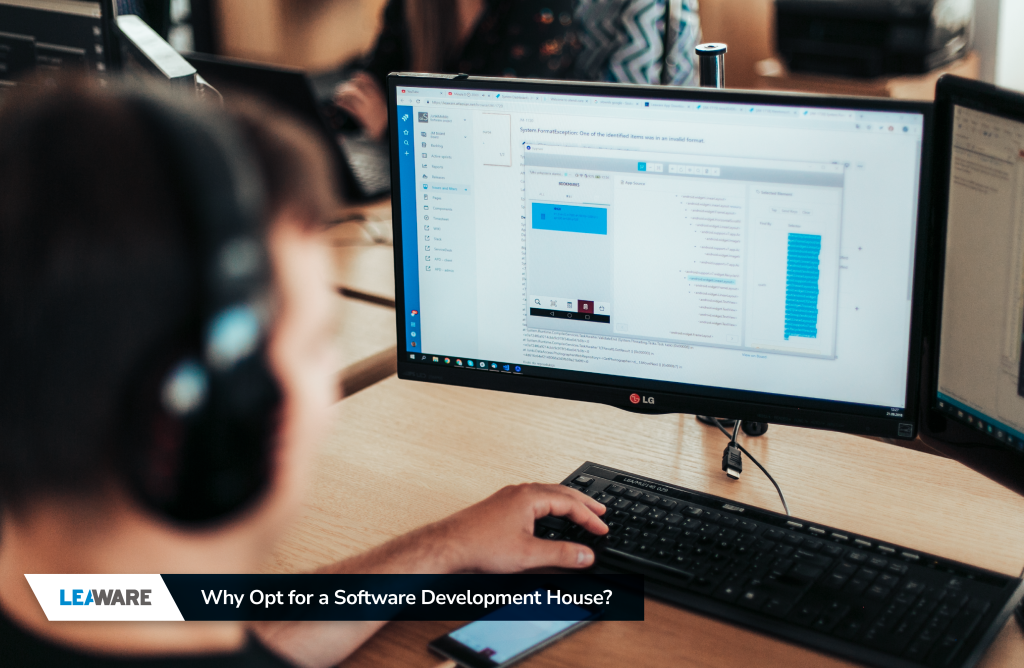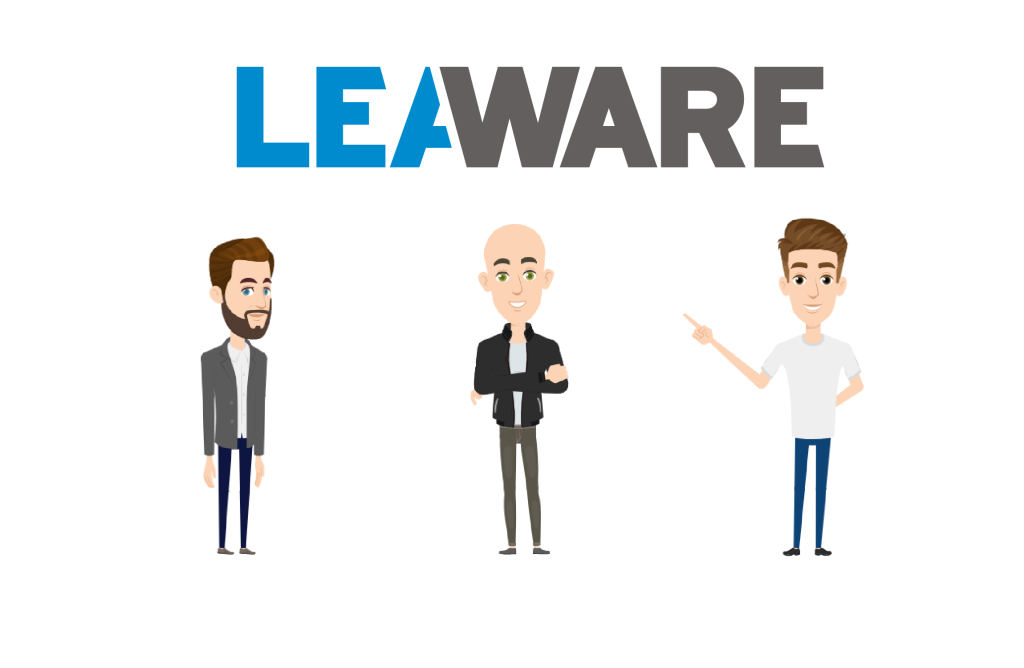Choosing between creating your software in-house or contracting an external software development house is a crucial decision for any business. This choice is influenced by your specific needs, resources, and time constraints. As the tech industry is perpetually evolving, outsourcing to a software development house has become a favorable decision, owing to the benefits it offers such as cost-effectiveness, access to specialized skillsets, time efficiency, and consistent output.
Why Opt for a Software Development House?
A 2020 survey conducted by Deloitte indicated that cost reduction was a priority for 70% of companies when it came to deciding on a software development house. It may appear that developing software in-house is a cheaper route, but when considering additional expenses like paid leave, health benefits, and sudden employee sickness, the costs can quickly accumulate.
On the other hand, a software development house provides access to a broad spectrum of highly skilled and experienced developers. Even though the upfront cost might seem steeper, the eventual value for money, speed of execution, and quality of work make it a wiser economic decision.
Additionally, a software development house provides access to a global pool of talent with an array of skills. They typically house a diverse group of experts ranging from developers and project managers to designers and QA professionals, equipping them to handle any project. Gathering such an array of expertise in-house can be an uphill task without a substantial budget.
Time is another important factor to consider. A well-established software development house can bring your project to life swiftly, thus saving invaluable time. They have readily available experts, thereby eliminating the need for a lengthy recruitment process.
Moreover, unlike in-house teams, software development houses have an abundance of employees ready to step in if needed, ensuring consistent output. This reduces the risk of project interruptions due to employee illnesses, holidays, or abrupt departures.
Example:
Let’s take a hypothetical startup, TechSolutions, which is aiming to develop a revolutionary project management tool. The startup initially considers building an in-house team for the task, factoring in hiring costs, office space, and the required technology.
However, after doing a cost-benefit analysis, they find that hidden costs such as employee benefits, paid time off, and unforeseen absences due to illness might significantly increase their expenditure. Further, they realize that their need for specialized skills like UI/UX design, front-end and back-end development, and quality assurance testing would require a considerable budget to hire the right professionals.
Faced with these challenges, TechSolutions decides to hire a software development house, InnovativeSoft, instead. Even though the initial costs seem higher, the startup recognizes the value they’re getting. InnovativeSoft provides them with access to a team of seasoned professionals with diverse skills, including project managers, developers, designers, and QA experts. This extensive talent pool equips InnovativeSoft to handle TechSolutions’ project proficiently.
The software development house also saves TechSolutions significant time, as they have experts readily available to commence the project immediately, eliminating the need for a time-consuming recruitment process.
Furthermore, InnovativeSoft offers consistent capacity. In case of sickness or holiday leaves, they have a multitude of employees ready to fill in, reducing the risk of project delays.
In the end, choosing a software development house proves to be a more cost-effective, efficient, and less risky strategy for TechSolutions, providing them with high-quality work that helps them launch their project management tool successfully.
Related: Is it better to choose freelancers or a software house?
Evaluating and Selecting a Software Development House
Selecting the ideal software development house for your needs can be challenging. It’s essential to assess their experience, expertise, and what they bring to the table meticulously. By asking the right questions, you can uncover critical information that will aid in making the best choice.
Example:
Consider a rising healthcare startup, MedInnovate, that is planning to develop a telemedicine application. The management realizes the need for a competent software development house to deliver a top-quality application that meets all regulatory standards and provides an excellent user experience.
To evaluate and select the ideal software development house, they shortlist three companies based on their reputation and initial proposals. The next step for MedInnovate is to dig deeper to assess the experience, expertise, and unique offerings of these potential partners.
- Company A has a strong portfolio of successful applications but lacks experience in healthcare software development. While their track record is impressive, they may not understand the specific challenges and regulatory requirements of the healthcare industry.
- Company B specializes in healthcare software development. They have extensive knowledge about HIPAA and other necessary healthcare regulations. However, they’re a relatively new company, and their portfolio isn’t as robust as Company A’s.
- Company C has both the experience in developing applications and a solid understanding of healthcare regulations. However, they’re located in a different time zone, which could potentially lead to communication issues.
MedInnovate prepares a list of pertinent questions to uncover more details about each company’s capability, such as their approach to data security, their quality assurance process, and how they handle project management and communication.
Through their comprehensive assessment, MedInnovate discovers that Company B, despite being relatively new, has the strongest healthcare expertise and a compelling approach to handling data security and project management. The startup decides to move forward with Company B, confident in their ability to handle the unique challenges of the project and build a high-quality telemedicine application.
“Don’t leave the future of your startup to chance. Claim your free consultation voucher today and let us help you navigate the intricacies of software development to find the perfect solution for your startup. Click the button now and unlock the potential of your startup with the right software development house.”

Choosing the Right Software Development House
Before initiating the selection process, understanding your specific needs is critical. Defining your project scope, budget, timeline, unique requirements, and expectations can help in shortlisting those companies best equipped to cater to your needs.
Steer clear of common pitfalls such as opting for the cheapest provider, disregarding dubious references, and settling for a company that lacks a robust plan or fails to offer contingency measures. Keep in mind that quality often corresponds with cost, and any red flags regarding past clients or lack of thorough planning should not be overlooked.
Example:
Consider a company named FoodRevolution, a rising startup in the food tech industry aiming to launch an online platform for gourmet food deliveries. To make this vision a reality, they need a state-of-the-art application that offers users a smooth and enjoyable experience.
FoodRevolution begins by outlining their specific needs. They require a multi-platform application (iOS, Android, and Web) that integrates with their already existing inventory management system. They also want to incorporate an AI-based recommendation system for personalized customer experience. Given their ambitious timeline, they aim to have a minimal viable product (MVP) within six months.
With these needs outlined, they start shortlisting potential software development houses:
- Company X: Offers a low-cost solution, but their portfolio lacks any projects involving AI-based recommendations.
- Company Y: Has an impressive portfolio but has had mixed reviews from previous clients, raising a red flag.
- Company Z: Quoted a higher price but has a track record of delivering similar projects within the required timeframe and includes a contingency plan for potential delays.
FoodRevolution avoids the pitfall of opting for Company X, realizing that the lower cost could mean sacrificing the quality of the AI-based recommendation system. They are also wary of Company Y due to the mixed reviews and past client experiences. After careful consideration, they decide on Company Z. Despite the higher cost, they are confident in Company Z’s ability to deliver a high-quality app on time and appreciate their transparent approach to potential issues and contingency planning.
By thoroughly understanding their needs and avoiding common mistakes, FoodRevolution has made an informed decision, setting the foundation for a successful partnership with their chosen software development house.
Conclusion
To summarize, a successful collaboration with a software development house hinges on clearly defining your needs, conducting in-depth research, obtaining comprehensive details about their offerings, and vigilantly watching out for any red flags. Adhering to these guidelines can help ensure a productive and mutually beneficial relationship with your chosen software development partner.
Don’t rush the process. Remember, selecting the right software development house is a significant investment that can shape the future success of your startup.
Your Startup’s Success Starts Here
If you’re a startup owner weighing up the best approach for your software needs, consider the expert advice shared in this article. Evaluate the pros and cons of hiring in-house versus outsourcing to a software development house. If you decide to take the latter route, take your time to select the right partner. Ask the right questions, clearly define your needs, and avoid common pitfalls.
To assist you in making this crucial decision, we offer a free consultation at our company. Here, we will provide insights, answer any questions, and share our own experiences to help you make the most informed decision.
Click on the button to claim your voucher for a free consultation. We’re looking forward to helping you navigate the world of software development and discover the ideal solution for your startup’s unique needs.







